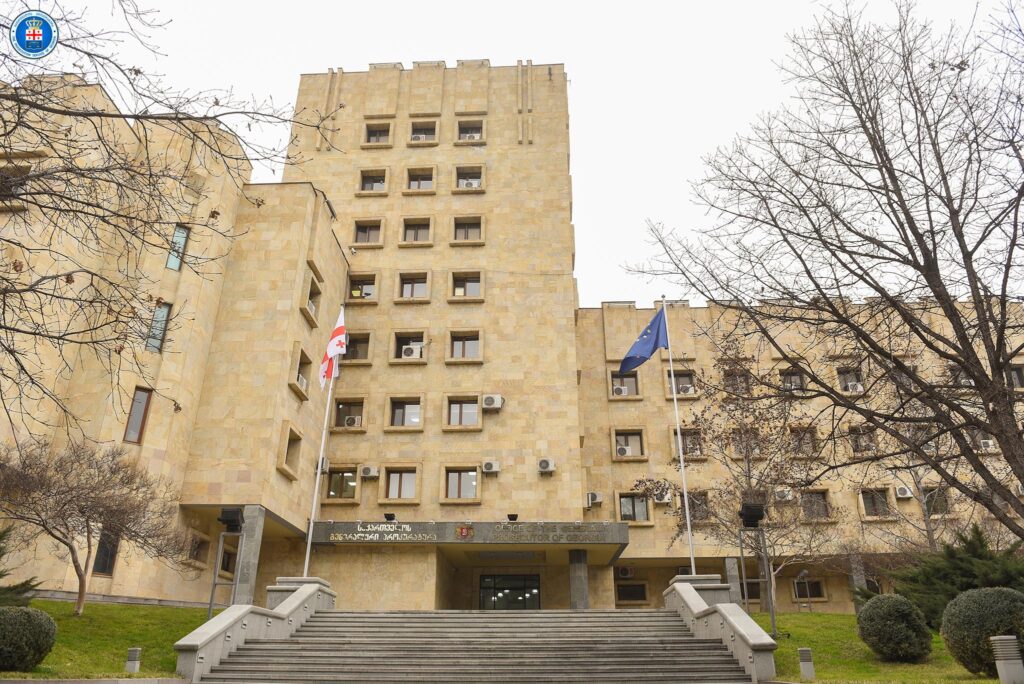
The briefing took place at the Prosecutor’s office regarding Roin Shavadze’s murder case. The jurors found the deputy head of the Adjara Main Division of the Constitutional Security Department and the special forces serviceman guilty of the intentional illegal detention of Roin Shavadze, a participant of the August 2008 war, and the murder in group of a helpless person, as well as the fact of exceeding official authority by violence.
“According to the findings of the Prosecutor’s Office of Georgia’s investigation, Roin Shavadze, a resident of Batumi, had been searched on August 15, 2008, by the head of the main division of the Constitutional Security Department of the Autonomous Republic of Adjara, as he received such task, as because there was information that he was cooperating with the “special services” of a foreign country.
The very next day, on August 16, the head of the main division of the Constitutional Security Department of the Autonomous Republic of Adjara, along with two employees, went to the military base of the Fifth Infantry Brigade of the Ministry of Defense, where Roin Shavadze was serving, and asked the brigade commander to visually show him from a distance. Upon seeing Roin Shavadze, the head of the main department cursed him several times and threatened to punish him outstandingly.
The same day, Roin Shavadze was viciously beaten with a machine gun by members of the “KUD” special unit, who were led by the head of the main division and his deputy. The attack took place in a cafe near the intersection of Gamsakhurdia and Melashvili streets in Batumi.
Roin Shavadze suffered multiple fractures to his ribs, a femur and left shoulder fracture, numerous lacerations, and countless bruises as a result of the violence. These injuries are considered life-threatening.
After Roin Shavadze lost consciousness due to the attack, the special forces personnel pulled him from the site and placed him in the back seat of one of the cars.
Following the actual settlement, Roin Shavadze was taken to the Kobuleti-Kakuti highway by the members of the special task force, who were led by the head of the main division and his deputy, with the intention of killing him.
The aforementioned individuals pulled over cars close to the Adjara-Guria border, removed Roin Shavadze, who was defenseless, from the vehicle, set him down on the side of the road close to the tree line, and used multiple rounds from Kalashnikov automatic guns to kill him.
According to the report of the forensic medical examination, the deceased had about 40 gunshot wounds on his body.
In order to disguise the fact of Roin Shavadze’s illegal arrest and murder, the employees of KUD developed a false version, namely: in order to create a formal and legal basis for the illegal arrest, after Roin Shavadze’s murder, a protocol of false arrest and personal search was fabricated in the Constitutional Security Department, where it was stated that Roin Shavadze was allegedly During the arrest, a narcotic drug was found, which did not correspond to reality, and in fact, the narcotic drug was brought to the place of arrest by the persons involved in the organization of the arrest. According to the same version, the person arrested for drug crime should have been taken to Tbilisi. During the journey, Roin Shavadze allegedly asked to stop the car in order to satisfy a natural need, after which he managed to take a gun from a member of the special forces, shoot in their direction and run away, on the basis of which he was returned fire.
For supporting the false version, the members of the special forces team created such a situation at the scene of the incident that the deliberate killing of Roin Shavadze would resemble the lawful killing of the guilty person under the conditions of necessary repulsion. In particular, they fired several times from the “Makarov” type pistol in the direction of their own car, and later the said pistol was placed near the body of Roin Shavadze. After that, the special forces gave false statements to the investigation to support the fabricated version.
The inquiry that was done clearly refuted the bogus version, which claimed that Roin Shavadze’s execution was done to keep him from escaping. Furthermore, it was determined that, at that time or thereafter, no inquiry into Roin Shavadze’s potential cooperation with the “special services” of another country was launched, and that the criminal case against Roin Shavadze was limited to drug-related offenses in accordance with Article 260. The current investigation did not provide any confirmation for this assumption.
It should be noted that Roin Shavadze served in the Ministry of Defense of Georgia with the rank of brigadier sergeant. In 2005-2006, he participated in the peacekeeping mission in Iraq as part of the coalition forces, during which he was awarded a medal for exemplary service. In addition, by the order of the Chief of the Joint Staff of the Georgian Armed Forces, in 2007 Roin Shavadze was thanked for his outstanding performance of his duty. Roin Shavadze also took part in the 2008 August war activities.
Throughout the trial, the prosecution provided strong evidence that, taken together, proved the accused had committed the crime. The jury found the defendants guilty on all charges after carefully reviewing all the available evidence and the case’s specific facts. The court then sentenced the offenders to 16 years in prison. The defendants received a reduced sentence of 12 years in jail as a result of the Amnesty Law.
We would like to remind everyone that in the aforementioned case, criminal prosecution has been opened against 12 individuals in total. As of right now, the criminal case is still being investigated in an effort to find and expose further suspects,” the Prosecutor’s office states.





